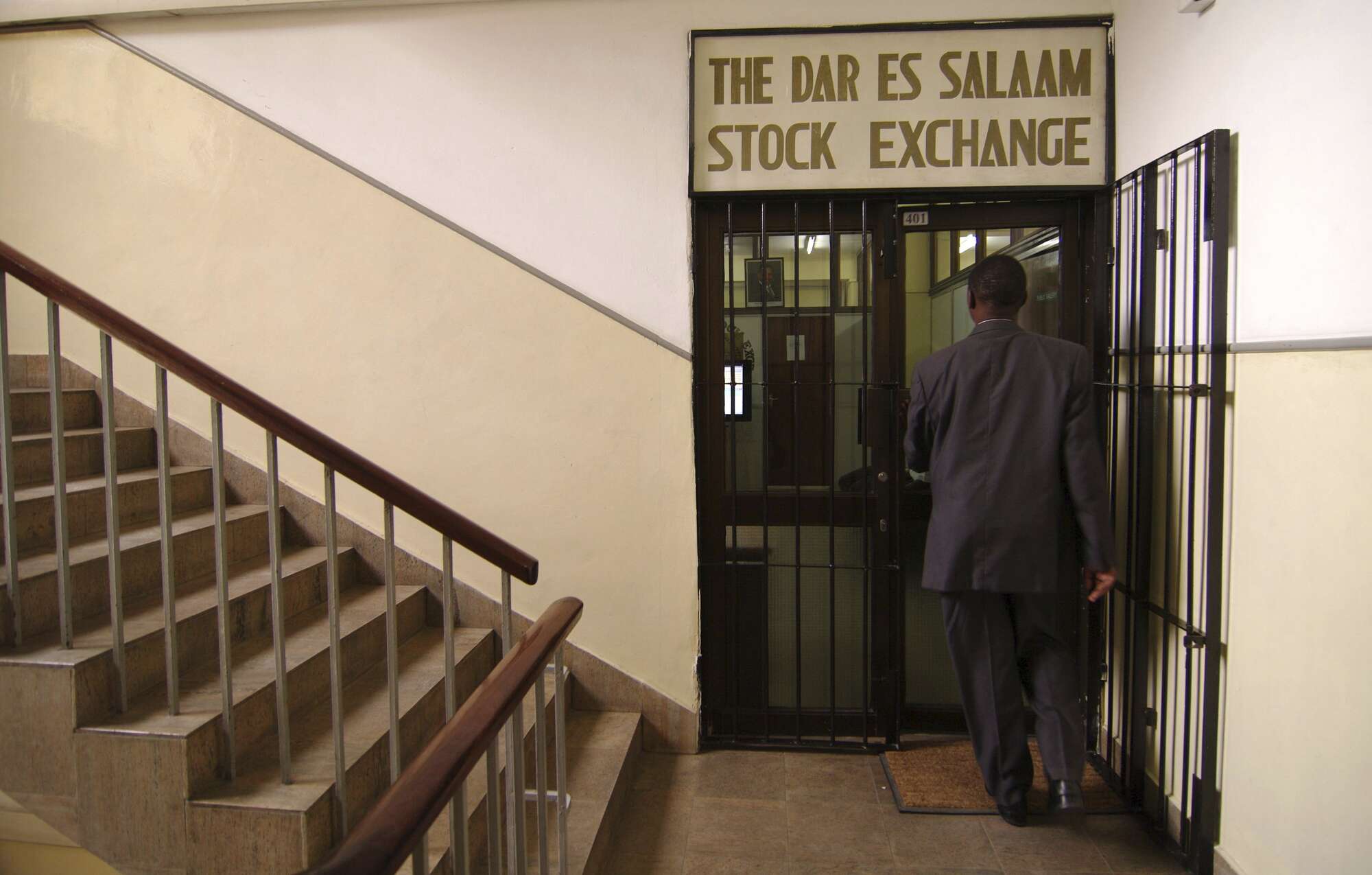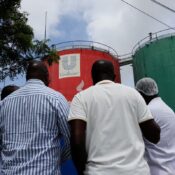
Dar’s stock market struggles as bear market losses exceed $393.78 million
The Dar es Salaam Stock Exchange (DSE) Plc is apprehensive about the potential negative impact on shareholder wealth and the consequent underperformance of the benchmark stock index that companies cross-listed on the bourse may have.
Analysts have described the decrease in the share price of cross-listed equities as “temporary” and typically “company-specific.”
In 2023, the total market capitalization of DSE (total market value of listed shares) decreased by seven percent to Tsh. 14.61 trillion ($5.35 billion) from Tsh. 15.68 trillion ($5.75 billion) in 2022. Similarly, the Tanzania All Share Index (DSEI) experienced a seven percent decline to 1,750.63 points from 1,881.99 points during the same period.
KCB, East African Breweries Ltd (EABL), Kenya Airways, Jubilee Holdings Ltd (JHL), Nation Media Group (NMG), and Uchumi Supermarkets are all cross-listed on the Nairobi Securities Exchange (NSE). Currently, the DSE has 28 listed corporations, of which 22 are local and 6 are cross-listed.
Sarah Mrema, the Head of Trading and Market Operations at DSE Plc, attributed the decline in shareholder value to the bear market that cross-listed firms are currently experiencing.
“This index (DSEI) experienced a decline as a result of price changes for cross-listed companies, including KCB, EABL, and JHL,” stated Ms. Mrema in the most recent annual report (2023).
“The decrease in the total market capitalization was attributed to the decline in prices of cross-listed companies,” according to the report.
Conversely, the domestic market capitalization increased by three percent to Tsh11,401 billion ($4.18 billion) from Tsh. 10,280 billion ($3.76 billion). The Share Index (TSI), which excludes cross-listed firms, rose by 11 percent to 4,304.4 points from 3881.89 points during the same period.
According to the DSE, the primary cause of the increase in domestic market capitalization and the Share Index (TSI) was the rise in share prices and valuations for certain domestic listed companies.
According to Paul Mwai, a director on the NSE board, the decrease in the value of cross-listed equities is not typically due to macroeconomic fundamentals, but rather to the individual companies.
“I am of the opinion that the macroeconomic fundamentals are not the likely cause.” I believe that this is company-specific and is contingent upon the specific stock that is cross-listed. However, I believe that it is transitory, and you should not be concerned about it, according to Mr. Mwai in an interview.
Foreign investors’ trading activity decreased by 56.2 percent to Ksh660 million ($5.07 million) during the week ending September 6, resulting in a 43.7 percent decrease in market turnover on the NSE to Ksh1.29 billion ($9.91 million) from Ksh2.3 billion ($17.68 million) the previous week.
According to analysts at Genghis Capital, foreign investors maintained their bearishness regarding significant blue chips, resulting in net outflows of Ksh. 292.54 million ($2.24 million).
“The Kenyan stock market and the shilling are expected to experience a positive trajectory in the wake of the US Federal Reserve’s most explicit indication of interest rate reductions in September.”
Genghis, in a weekly market report dated September 9, 2024, asserts that this would result in a reversal of net sales (capital outflows) that have been a concern for the market since 2020.
In the first seven months of 2024, foreign investors made net sales of Ksh490 million ($3.76 million), and the NSE recorded capital outflows totaling Ksh. 84.58 billion ($650.37 million) between 2020 and 2023.
The limited supply of cross-listed shares, exchange rate risk, and manual settlement operations are the primary factors contributing to the poor liquidity of shares and the declining trade volumes that cross-listed firms are experiencing in regional markets.
Investor exposure risks, trading in multiple currencies, the absence of a unified regulatory framework, and the varying levels of development of regional stock markets are additional factors that impede the trading of cross-listed shares in the region.
In an earlier interview, Wycliffe Shamiah, Chief Executive of Kenya’s Capital Markets Authority (CMA), stated, “We must acknowledge that trading in cross-listed shares in the region has largely remained manual.”
Investors are encountering challenges in trading cross-listed shares, as they are primarily held by shareholders domiciled in primary markets, despite the fact that companies make strategic decisions to list their shares in jurisdictions that are distant from their primary markets.
“The expectations that cross-listed securities will experience heavy trading present practical challenges,” explains Mr. Shamiah.
Listed companies typically cross-list shares to reduce the cost of capital raising, diversify their investor base, increase the share price, improve the liquidity of the stock, increase visibility, and solidify their market share for their products and services.
In the region, approximately ten companies have cross-listed their shares.
These include Kenya Airways, Equity Group, Centum Investments, Jubilee Holdings, Umeme Ltd, the Bank of Kigali (BoK), the collapsed Uchumi Supermarkets, and Nation Media Group (NMG).
For example, NMG, KCB, EABL, Kenya Airways, and Jubilee Holdings, which are predominantly listed on the Nairobi Securities Exchange (NSE), are cross-listed at the Ugandan Securities Exchange (USE) and Dar es Salaam Stock Exchange (DSE ).
Umeme and Bank of Kigali, which are cross-listed at the NSE, are primary listings on the Kampala and Kigali bourses, respectively.
Equity Bank, NMG, KCB, and Uchumi are also cross-listed on the Rwanda Stock Exchange (RSE), while Centum Investments is cross-listed on the USE.
Additionally, Equity Bank is cross-listed on the USE.
The NSE has not reaped the benefits of reciprocal listings, despite the fact that numerous Kenyan companies have cross-listed their securities on the Ugandan, Tanzanian, and Rwandan markets.
Rwanda’s Bank of Kigali became the second firm in the region to cross-list its shares on the NSE in 2018, following Uganda’s utility firm Umeme, which did so in 2012.
In June 2016, DSE issued shares to the public. Subsequently, on July 12, 2016, the company self-listed its shares on its own Exchange.
All Categories
Recent Posts
Tags
+13162306000
zoneyetu@yahoo.com


